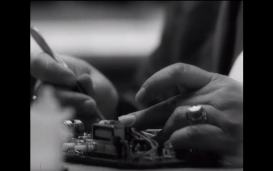This project is a study of vernacular recording cultures in twentieth-century Eastern Europe, built on a series of case studies that foreground the tensions between institutional attempts at systematic sound recording and individuals’ resistance to these projects. Sound media, here, are artifacts of material investment and creative production at once: family conversations recorded on tape reels, novels that situate urban destruction and ghettoization through transcribed sound effects, cheap copied records compiled by university students to be spun at parties, and more. My work begins at the surface of these sound documents—rehearing them—and tracks them through transnational networks, institutional archives, and personal collections. Drawing upon migration studies, I analyze the ways that music and sound are and have been used to control, model, and make claims to home, territory, and space across Eastern Europe.
Two components of this project are my focus while at the MPIWG: First, tape’s emergence as the sound medium of choice for ethnographic field recording in Eastern Europe, during the Second World War and through the Cold War institutionalization of linguistic anthropology and ethnomusicology East and West; second, the history of amateur recording, investigated through an unusual format that was pervasive and cheap for much of the twentieth century in Poland: the homemade flexidisc. The history of domestic, bootleg, and amateur recording cultures has a peculiar alternative economy specific to state socialism that counters many assumptions about popular music as a restricted resource by linking it to the sourcing of polyethylene.

